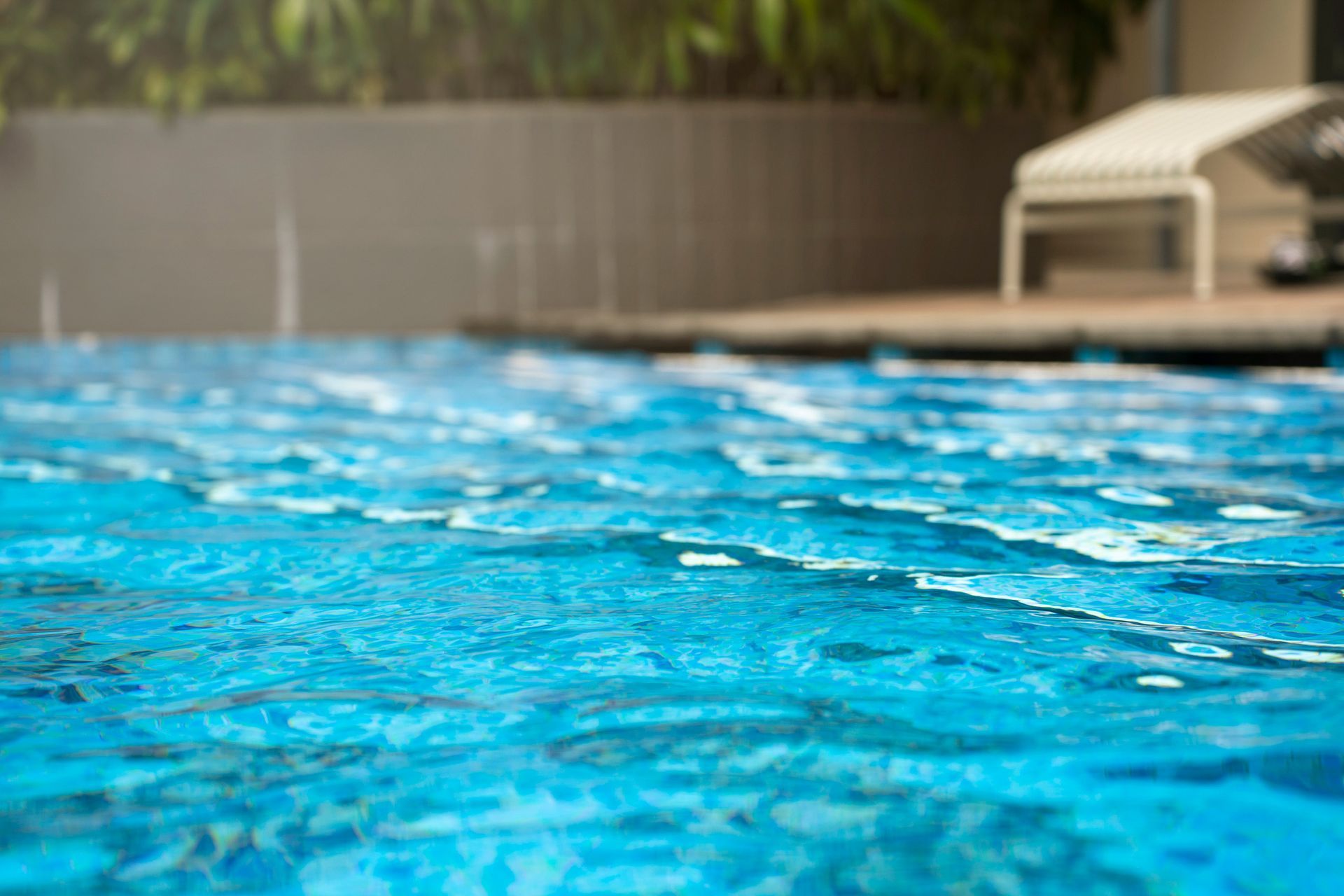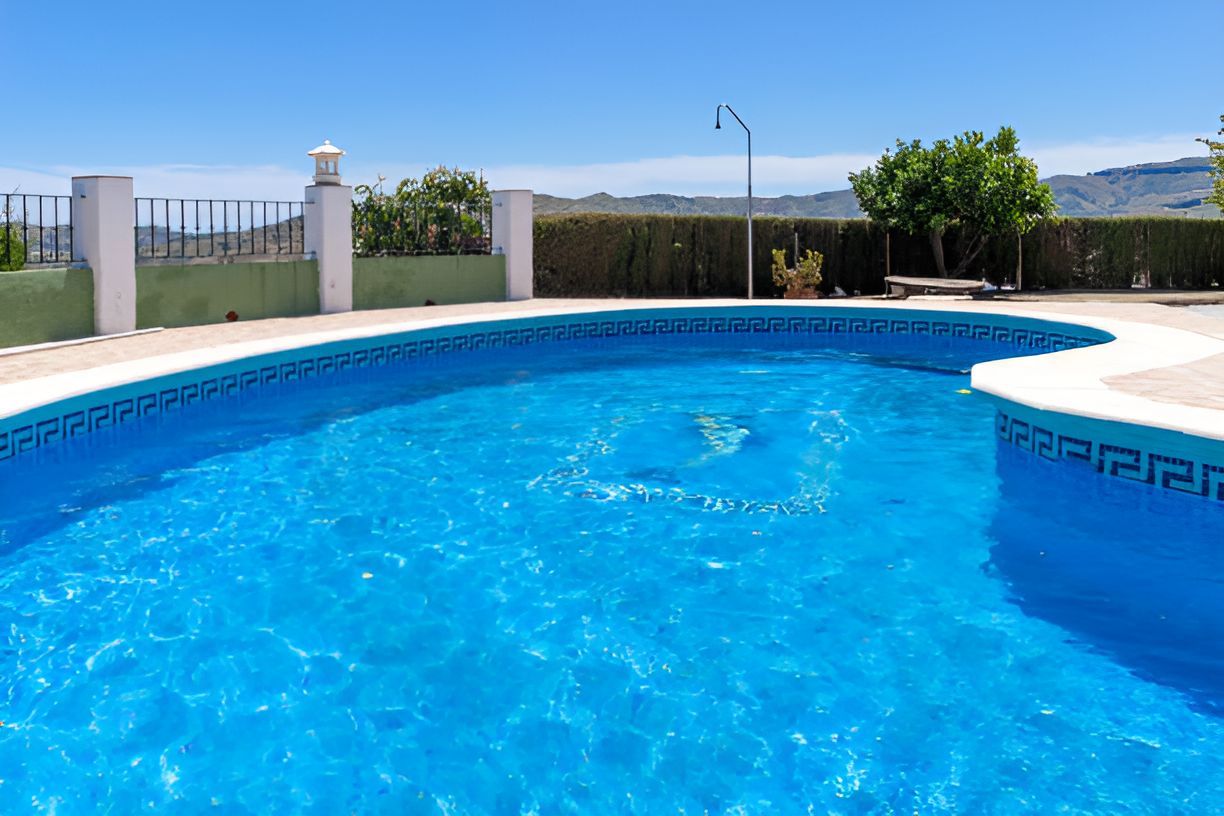Blog
Blog

By admin
•
April 13, 2025
Swimming pools are a great source of recreation and relaxation, but maintaining water quality is crucial for ensuring a safe and enjoyable experience. While traditional chlorine treatments are commonly used, secondary sanitation methods like ozone and ultraviolet (UV) light offer significant benefits that enhance water safety and overall pool hygiene. What is Secondary Sanitation in Swimming Pools? Secondary sanitation refers to additional disinfection processes applied after the primary treatment (usually chlorination) to ensure that the pool water is free from harmful pathogens and contaminants. This extra layer of protection is vital for maintaining clean and safe swimming environments. Benefits of Ozone in Swimming Pools Highly Effective Disinfection : Ozone (O₃) is a powerful oxidizer that effectively kills bacteria, viruses, and other pathogens present in pool water. It is especially effective against chlorine-resistant organisms like Cryptosporidium, making it an essential addition to pool sanitation. No Harmful Residuals : Ozone decomposes back into oxygen quickly, leaving no chemical residues in the water. This is beneficial for swimmers, as it reduces the risk of skin and eye irritation commonly associated with high chlorine levels. Improved Water Clarity : Ozone treatment helps to break down organic matter and contaminants, leading to clearer and more visually appealing pool water. This enhances the overall swimming experience as well. Reduced Chlorine Usage : By using ozone as a secondary sanitizer, pool owners can significantly reduce the amount of chlorine needed for disinfection. This not only saves costs but also minimizes the strong chemical smell and irritation often associated with chlorine. Benefits of UV Light in Swimming Pools Broad-Spectrum Pathogen Inactivation : UV light effectively inactivates a wide range of microorganisms, including bacteria, viruses, and algae, by damaging their DNA. This makes it a highly effective method for enhancing pool water safety. Chemical-Free Treatment : UV disinfection does not involve adding chemicals to the pool water, making it a safe and environmentally friendly option. This minimizes chemical exposure for swimmers and reduces the risk of allergic reactions. Instantaneous Treatment : The UV disinfection process is rapid, treating pool water as it circulates through the UV system. This continuous disinfection ensures that the water remains safe at all times, especially during peak usage periods. Lower Maintenance Costs : Though the initial setup cost for UV systems may be higher, they generally require less maintenance and have lower operational costs over time. This makes them a cost-effective solution for long-term pool management. Conclusion Incorporating secondary sanitation methods like ozone and UV light into swimming pool maintenance offers numerous advantages, including enhanced disinfection, reduced chemical use, and improved water quality. These advanced technologies provide a safer and more enjoyable swimming experience, ensuring that pool owners meet health and safety standards while keeping their pools inviting and clean.

By admin
•
April 10, 2025
Swimming is often regarded as one of the most enjoyable forms of exercise, but its benefits extend far beyond just fun in the water. Whether you're a seasoned swimmer or a beginner, incorporating swimming into your routine can significantly enhance your health, wellness, and mindfulness. In this blog post, we'll explore these benefits in detail. 1. Physical Health Benefits Cardiovascular Fitness Swimming is an excellent cardiovascular workout, helping to strengthen your heart and lungs. According to the American Heart Association, engaging in regular aerobic exercise, like swimming, can reduce the risk of heart disease and improve overall cardiovascular health. Just 30 minutes of swimming a few times a week can lead to significant improvements in your heart health. Muscle Strength and Endurance Water provides natural resistance, making swimming an effective way to build muscle strength and endurance. Unlike many other forms of exercise, swimming engages multiple muscle groups simultaneously. For example, the freestyle stroke works the arms, legs, and core, promoting overall strength and balance. Joint-Friendly Exercise One of the biggest advantages of swimming is its low-impact nature. The buoyancy of water reduces the strain on joints, making it an ideal exercise for those with arthritis, injuries, or chronic pain. It allows individuals to engage in physical activity without the risk of injury associated with high-impact exercises. Weight Management Swimming can be a fun way to burn calories and maintain a healthy weight. Depending on the intensity and duration, swimming can burn anywhere from 400 to 700 calories per hour. Incorporating swimming into a balanced fitness routine can aid in weight loss or maintenance. 2. Mental Wellness Benefits Stress Reduction Swimming has been shown to be an effective stress reliever. The rhythmic nature of the strokes combined with the soothing properties of water can help calm the mind. A study published in the Journal of Sports Sciences found that individuals who swim regularly report lower levels of stress and anxiety. Improved Mood Engaging in physical activity, including swimming, triggers the release of endorphins, the body's natural mood lifters. Regular swimming can help alleviate symptoms of depression and anxiety, contributing to overall mental well-being. Enhanced Sleep Quality Swimming can also promote better sleep. The physical exertion helps tire the body, while the relaxation induced by the water can improve sleep quality. According to a study published in the Journal of Clinical Sleep Medicine, regular swimming can help individuals fall asleep faster and enjoy deeper sleep cycles. 3. Mindfulness and Connection to Nature Mind-Body Connection Swimming encourages a deep focus on the present moment, making it a form of mindfulness practice. As you glide through the water, you can concentrate on your breath, stroke technique, and the sensations of water against your skin. This focus helps clear your mind and can lead to a meditative state. Connection with Nature For those who enjoy outdoor swimming, such as in lakes or oceans, there’s an added benefit of connecting with nature. Being in natural water can enhance feelings of peace and relaxation, contributing positively to mental health. Studies have shown that exposure to natural environments can lower stress levels and improve mood. Social Interaction Swimming can also be a social activity. Joining a swim team, participating in group classes, or simply swimming with friends can foster social connections. These interactions can enhance feelings of community and belonging, contributing to overall mental wellness. Conclusion Swimming is more than just a recreational activity; it’s a holistic approach to enhancing physical health, mental wellness, and mindfulness. With its wide-ranging benefits—from cardiovascular fitness and muscle strength to stress reduction and improved mood—swimming is a versatile exercise that can accommodate people of all ages and fitness levels. If you’re looking to improve your health and well-being, consider making swimming a regular part of your routine. Whether you prefer the tranquility of a lap pool or the invigorating waves of the ocean, the water awaits you. Dive in and discover the myriad benefits that swimming has to offer for your body and mind!

April 4, 2025
Are you considering upgrading your swimming pool experience? One of the most popular enhancements among pool owners today is the addition of a salt generation system. At Arrow Master Pools, we believe that a saltwater pool offers a range of benefits that can transform your swimming experience. In this blog post, we’ll explore the key advantages of installing a salt generation system in your pool. What is a Salt Generation System? A salt generation system, also known as a saltwater chlorinator, uses salt to produce chlorine through a process called electrolysis. Instead of adding traditional chlorine to your pool, the system converts the salt into chlorine, which helps keep your pool water clean and sanitized. Benefits of a Salt Generation System 1. Softer Water for a Better Swim Experience Saltwater pools have a lower chlorine concentration compared to traditional pools. This results in water that feels softer on your skin and is gentler on your eyes. Many swimmers find that they can swim longer without the irritation often associated with traditional chlorine pools. 2. Reduced Chemical Usage With a salt generation system, the need for additional chemicals is significantly reduced. The system continuously produces chlorine, which means you’ll need fewer shock treatments and other chemical additives. This not only saves you money in the long run but also makes pool maintenance much simpler. 3. Cost-Effective in the Long Run While the initial investment in a salt generation system may be higher than traditional chlorine systems, the long-term savings can be substantial. Reduced chemical costs, lower maintenance, and less frequent cleaning can offset the initial installation costs. Many pool owners find that their overall expenses decrease after switching to a saltwater system. 4. Easier Maintenance Saltwater pools generally require less frequent monitoring and balancing of chemicals compared to traditional pools. The self-generating nature of the chlorine means that pool owners spend less time worrying about chlorine levels and pH balancing, making pool maintenance more straightforward and less time-consuming. 5. Environmental Benefits By using a salt generation system, you are contributing to a more environmentally friendly approach to pool maintenance. Traditional chlorine can lead to chemical runoff, which can harm local ecosystems. Saltwater systems create fewer chemical byproducts, making them a more sustainable option for pool owners. 6. Longer Lasting Equipment Saltwater can be less corrosive than traditional chlorine when properly balanced. This can lead to less wear and tear on your pool equipment, including filters, heaters, and pumps. As a result, you may find that your pool components last longer and require fewer replacements. Conclusion Incorporating a salt generation system into your swimming pool is an investment that can enhance your swimming experience while providing numerous benefits. From softer water and reduced chemical usage to easier maintenance and environmental advantages, saltwater pools offer a compelling alternative to traditional chlorine systems. If you're considering making the switch to a salt generation system or have any questions about the process, feel free to reach out to the Arrow Master Pools team. We're here to help you create the ultimate pool experience!
Quick Links
OUR LOCATION
Content, including images, displayed on this website is protected by copyright laws. Downloading, republication, retransmission or reproduction of content on this website is strictly prohibited. Terms of Use
| Privacy Policy
Content, including images, displayed on this website is protected by copyright laws. Downloading, republication, retransmission or reproduction of content on this website is strictly prohibited. Terms of Use
| Privacy Policy

